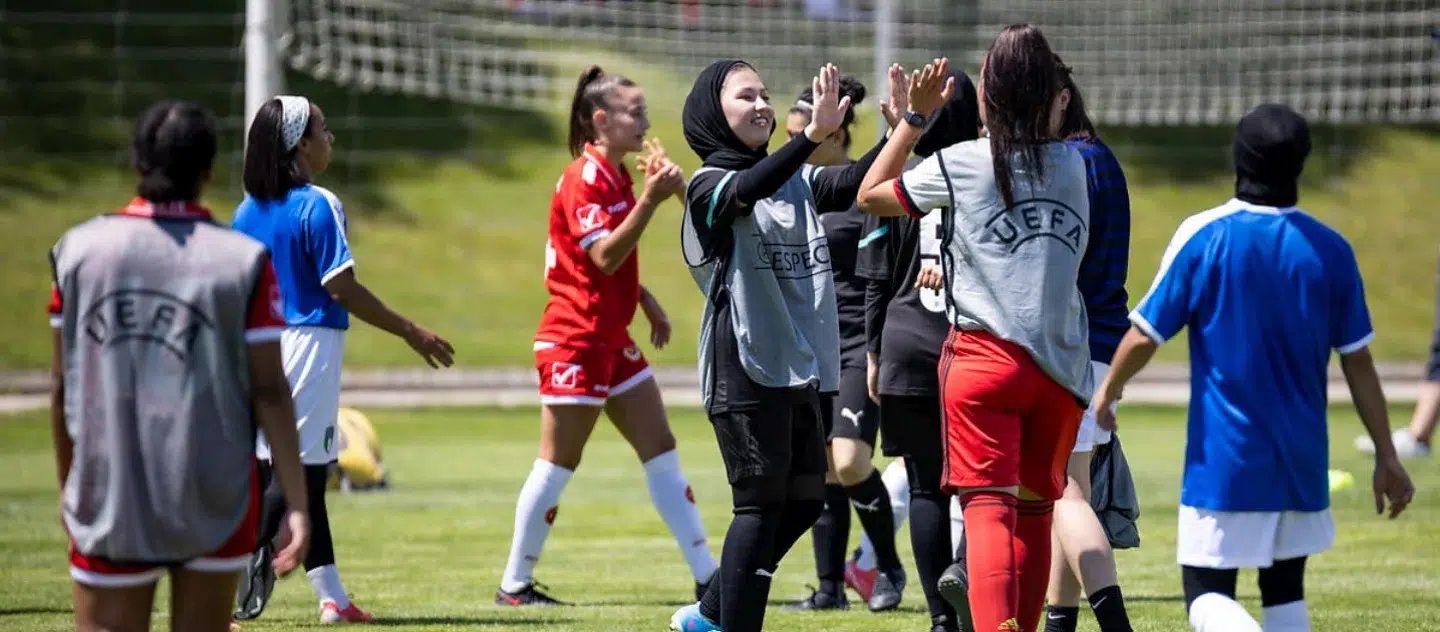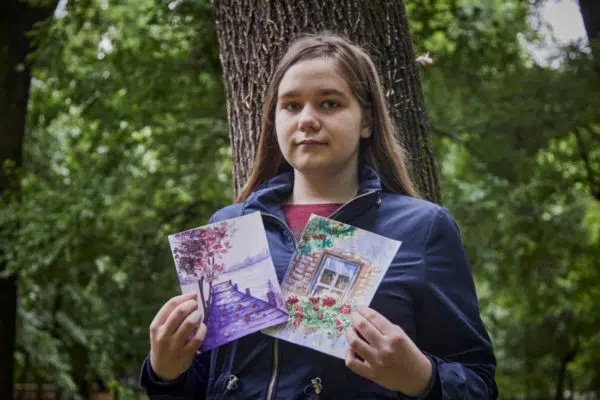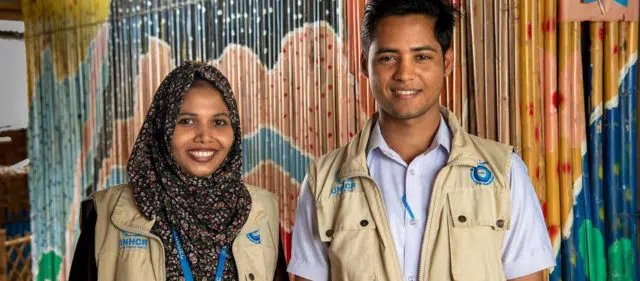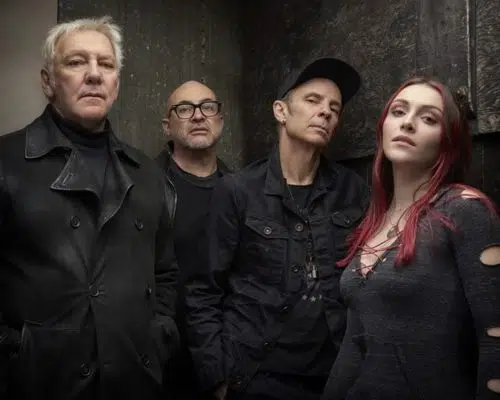
Players congratulate each other during a match at the inaugural UNITY EURO Cup in Nyon, Switzerland.
© UNHCR/Pierre Albouy
Tournament featuring teams of female and male refugee and amateur national players highlights the role of sport in empowering displaced people and connecting them to their new communities
By Jody Clarke in Nyon, Switzerland
Fatema Haydari spoke no Italian when she arrived in Florence, Italy, nine months ago. But she did play football. As a former striker for the Afghan national women’s team, she played 15 games and scored five goals for her country before fleeing in the aftermath of the Taliban’s takeover in 2021
“Through the girls and the team, I have many things to say in Italian. I’ve taken Italian courses and made Italian friends as well,” Fatema, 20, said.
Not only that. Her club team in Florence, Il Centro Storico Lebowski, has just been promoted to Serie C, the third tier in the national Italian league, moving her one step closer to her dream of playing professional football in the future.
Fatema is one of 80 players who took part in the recent inaugural UNITY EURO Cup, an eight-team tournament organised by UEFA, the Union of European Football Associations, and UNHCR, the UN Refugee Agency, at the Colovray Stadium near UEFA’s headquarters in Nyon, Switzerland.
Each team consisted of a mix of refugee and national amateur players, both female and male. Germany eventually won the trophy on penalties after a 2-2 draw against Switzerland in the final.
Bringing together teams from football associations across Europe, the tournament was an opportunity to highlight football’s role in strengthening ties between refugees and the communities that welcome them. It was also a chance for the players to get to know people they might not otherwise meet in the course of their daily lives.
“No one is different on the field,” said Laura Georges, a former member of the French national team. Capped 188 times for her country, she chose to take part in the UNITY Cup not only to show her support but also to learn more about the people who have made France home after fleeing their own countries.
“For me, [it’s] an opportunity to know a little bit of where they are from, because in a football game everyone is happy. But then after the tournament, what is their life [like]? Do they have enough support? Can they travel? Do people support them?”
It was a sentiment shared by Stephen Kenny. As manager of the Irish men’s national football team, he has seen the power of football to integrate people into their new communities over the course of a long career in football management.
The UNITY Cup was a landmark occasion for refugee inclusion, Kenny said, but it also highlighted the possibilities that football can offer if adequate support is provided. “Underneath that, it is important that the infrastructure grows and people coming from different countries have an opportunity to flourish as individuals.”
For Fatema, that means pursuing her dream of playing football in the future.
“Women are freer and have more liberty to play football and any sport” in Italy, she said. “I just finished school in Afghanistan and I want to go to university. I want to continue football professionally and then get a job like a normal person.”
Originally published by UNHCR on 26 July 2022





